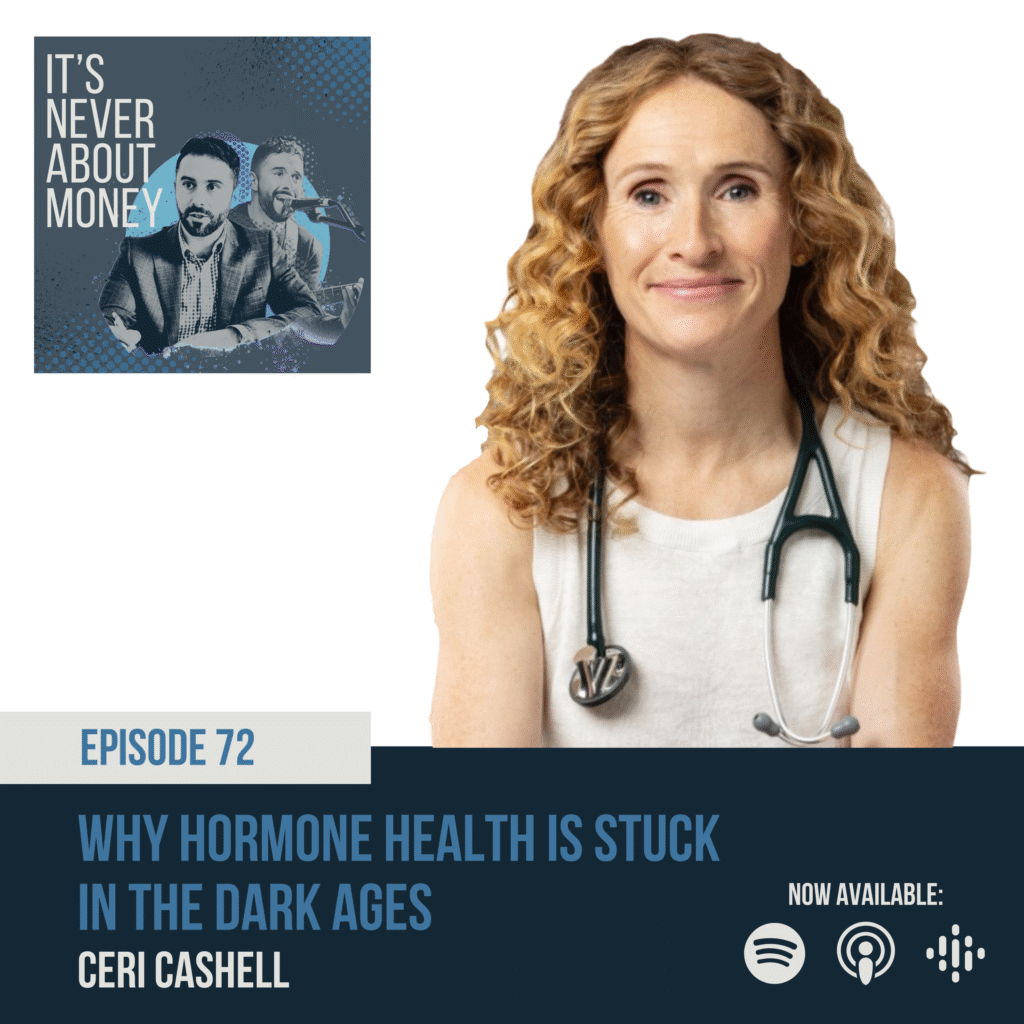Why We’re in the Dark Ages for Hormone Health
When you think about hormones, you might think about puberty, pregnancy, or menopause. The reality is that “sex hormones” such as oestrogen, progesterone and testosterone influence every system in the body for both men and women.
They affect how you think, how you feel, how you work and how you relate to others. Which is why it is astonishing that hormone health is still decades behind other areas of medicine.
Outdated myths with real-world consequences
In my conversation with Dr Ceri Cashell, she explained how two myths continue to shape medical thinking today:
- Testosterone causes prostate cancer in men
- Oestrogen causes breast cancer in women
Both have become firmly held beliefs despite shaky evidence. In fact, the “testosterone causes prostate cancer” idea can be traced back to a single case from the 1930s. Yet the shadow of those fears still influences how readily doctors will prescribe hormone therapy, even when it could transform a patient’s quality of life.
Misdiagnosis is common
One of the biggest tragedies is that many people with hormonal imbalances are misdiagnosed.
Ceri often sees women in perimenopause or menopause who have been prescribed antidepressants for symptoms that are actually hormonal. Men can also experience a slow decline in testosterone from their late 20s onward, leading to low energy, reduced motivation and brain fog, but rarely get their hormone levels checked.
The ripple effect on work, relationships and the economy
When hormone health slips, the effects can be far-reaching:
- Reduced confidence and focus at work, sometimes prompting early retirement
- Strained relationships due to changes in mood and libido
- Lost income and productivity, with significant costs at a national level
For example, early menopause and its symptoms cost the Australian economy billions each year in lost earnings and increased healthcare needs.
Why we need a new approach
We would not accept outdated 1930s thinking in any other area of healthcare, so why here?
Improving hormone health awareness means:
- Updating medical training to include hormone therapy as a safe and viable treatment
- Busting myths with up-to-date research
- Encouraging both men and women to ask for hormone checks when experiencing unexplained symptoms
What you can do right now
If you are feeling persistently flat, foggy or fatigued and lifestyle changes have not helped, it is worth having a hormone conversation with your GP. Be specific. Ask for your testosterone, oestrogen and progesterone levels to be checked, and if they are not confident in managing hormone therapy, request a referral to someone who is.
Your hormones are not just about reproduction. They are about living and performing at your best in your career, your relationships and your everyday life.
🎧 Listen to the full conversation with Dr Ceri Cashell on It’s Never About Money







